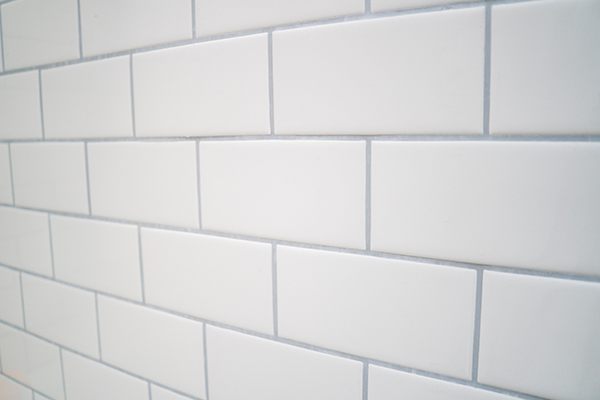Is Tile Painting in NJ a Long-Term Investment?
You’ve likely been looking around your bathroom or kitchen, noticing the outdated or worn tiles, and wondering if painting them could be worthwhile. You’re cautious because you don’t want a quick fix that peels away after a year, but the cost and disruption of a total tile replacement has you searching for alternatives. It’s a legitimate dilemma—tiles are meant to be durable, so can paint hold up and make sense as a long-term investment in New Jersey?
 Painting tile professionally can be a valuable choice, especially as a budget-friendly and relatively hassle-free alternative to a full tile replacement. Still, it’s important to understand its limitations clearly. Professionally painted tile can significantly upgrade your space aesthetically and offer several years of reliable use when done correctly. However, calling it a true long-term investment, especially in heavy-use or moisture-rich areas, might stretch expectations too far. Instead, consider professional tile painting as a solid, medium-term solution that effectively bridges the gap between costly renovations and short-term DIY fixes.
Painting tile professionally can be a valuable choice, especially as a budget-friendly and relatively hassle-free alternative to a full tile replacement. Still, it’s important to understand its limitations clearly. Professionally painted tile can significantly upgrade your space aesthetically and offer several years of reliable use when done correctly. However, calling it a true long-term investment, especially in heavy-use or moisture-rich areas, might stretch expectations too far. Instead, consider professional tile painting as a solid, medium-term solution that effectively bridges the gap between costly renovations and short-term DIY fixes.
Exactly How Long Will Professionally Painted Tile Last?
If you’ve considered painting tiles, you’ve likely encountered conflicting information about durability. Let’s clear up this confusion with realistic expectations backed by clear evidence.
- Low-Wear Areas (Backsplashes and Decorative Walls):Professionally painted tiles in areas without constant moisture exposure or frequent contact typically last longer. Surfaces such as kitchen backsplashes or decorative bathroom walls often maintain their finish for around 7–10 years, sometimes even beyond that, provided they receive proper care.
- High-Moisture and Heavy-Use Areas (Showers, Floors):Tiles frequently exposed to water, heat, and friction show reduced durability. Even when applied by professionals, paint in showers or on bathroom floors usually remains visually appealing for around 3–5 years. However, in some cases, the floor might require attention sooner, often within 1–2 years, due to unavoidable friction and moisture damage.
- Kitchen Countertops and High-Wear Surfaces:Painting kitchen tile countertops or surfaces regularly exposed to sharp utensils and hot pots simply doesn’t hold up well. Paint in these conditions typically fails within a year, as heat and friction rapidly degrade even professional-grade finishes.
Understanding these differences clearly defines realistic expectations, helping you make an informed decision rather than one based on vague promises or overly optimistic estimates.
Why Professional Application Makes a Big Difference
Proper surface preparation and product choice profoundly influence tile paint’s lifespan, making a strong argument for professional application. Professional refinishers carefully do the following:
- Prepare Surfaces Thoroughly:Professional refinishing involves careful surface preparation, including completely removing grease, mold, mildew, and soap scum. Tiles are meticulously sanded or chemically etched to create a perfect surface for paint adhesion. Glossy surfaces are especially challenging and require skilled sanding to ensure durability.
- Choose and Apply Specialized Products Correctly:High-quality bonding primers and specialty paints like epoxy and enamel, formulated explicitly for tile, are crucial. These products offer far superior adhesion, moisture resistance, and durability compared to everyday paints. Professionals know exactly how many thin coats to apply, allowing the required drying and curing time and ensuring the most durable finish achievable through painting.
- Repair Existing Damage Before Painting:Chips, cracks, and worn grout lines are properly repaired before painting begins. Neglecting these steps—common in DIY projects—guarantees premature failure. Professional refinishing ensures underlying problems don’t sabotage your new painted surface.
This detailed attention results in professionally painted tiles lasting significantly longer than DIY attempts, typically adding several additional years of durability.
Clear Limits You Need to Know About Tile Painting
Even professionally applied paint has inherent limitations that homeowners should accept before deciding.
- Regular Maintenance is Essential:Painted tile requires regular, careful maintenance—cleaning with mild, non-abrasive products and avoiding harsh scrubbing or chemical cleaners. Neglecting this can dramatically reduce your painted tiles’ lifespan.
- Touch-Ups and Minor Repairs Likely Needed:Minor chips or scratches may appear over time, especially in high-use areas. Timely touch-ups extend the life of the finish, but the need for occasional upkeep must be anticipated and accepted upfront.
- Not Suitable for Certain Surfaces:If your tiles receive constant direct water contact (such as shower floors or heavily used countertops), tile painting isn’t likely to hold up as you’d prefer. In these cases, consider professional reglazing or replacement instead.
Understanding these limitations upfront allows you to see tile painting’s value without disappointment from unrealistic expectations.
Professional Reglazing vs. Tile Painting—Clarifying the Confusion
Tile painting and tile reglazing are often confused, but they’re quite different processes. Reglazing involves adding a new, thicker, highly durable surface coating applied by professionals after extensive surface preparation. Reglazing regularly provides a much longer lifespan—typically 5–10 years in heavily used areas and even up to 10–15 years or longer in less demanding conditions.
Painting, even professionally done, involves applying specialized, durable paint products rather than a thick glaze, resulting in shorter but still respectable lifespans. Clearly distinguishing between these two helps you accurately choose the solution for your goals and budget.
Is Professional Tile Painting Right for Your Situation?
So, is tile painting truly a long-term investment for NJ homeowners? The straightforward answer is “sometimes—but not always.” Here’s how you know if it suits your needs:
- Yes, if your primary goal is a budget-conscious, aesthetically satisfying update for areas not subject to intense daily water exposure or constant foot traffic. A kitchen backsplash or bathroom wall? Absolutely.
- Possibly, with caution, if you’re addressing shower walls or bathroom floors and can accept potential touch-ups after a few years.
- No, if you want to permanently solve issues in areas exposed constantly to moisture, friction, or heavy daily wear, like kitchen counters or shower floors. For those spots, reglazing or replacement likely makes better sense.
Making the Right Choice for Your Tiles in NJ
Professional tile painting is undeniably attractive, especially considering the cost savings, minimal disruption, and immediate aesthetic transformation it provides. But it is critical to clearly understand what you can realistically expect from painted tiles.
If you’re considering tile painting as a serious option, your next step should be consulting professionals specializing exclusively in bathroom and tile refinishing. They’ll objectively evaluate your space, clearly explain limitations specific to your situation, and confidently offer the guidance you need to choose between painting, reglazing, or full replacement.
Ready to learn more about transforming your tiles the right way? Contact a professional tile refinishing company today for honest, expert advice tailored to your NJ home.

